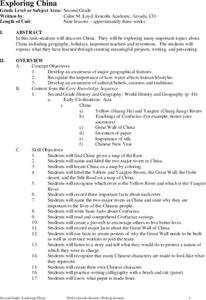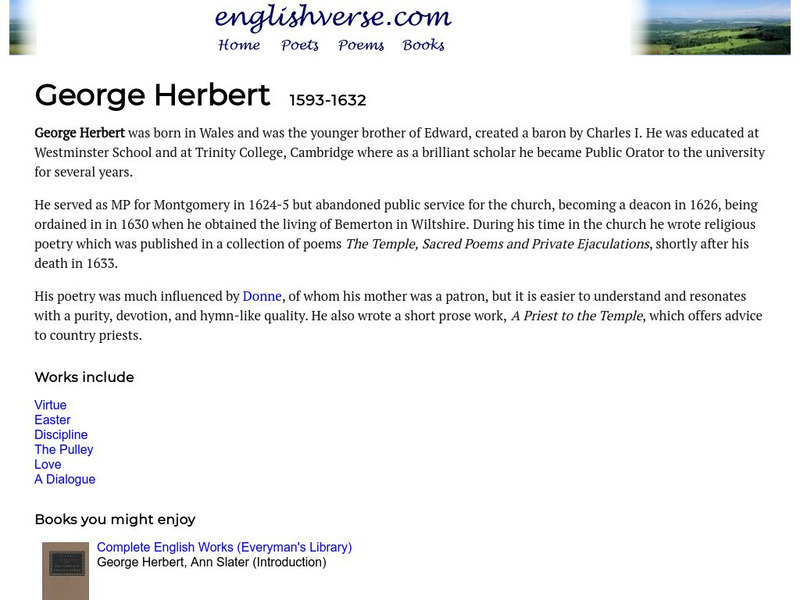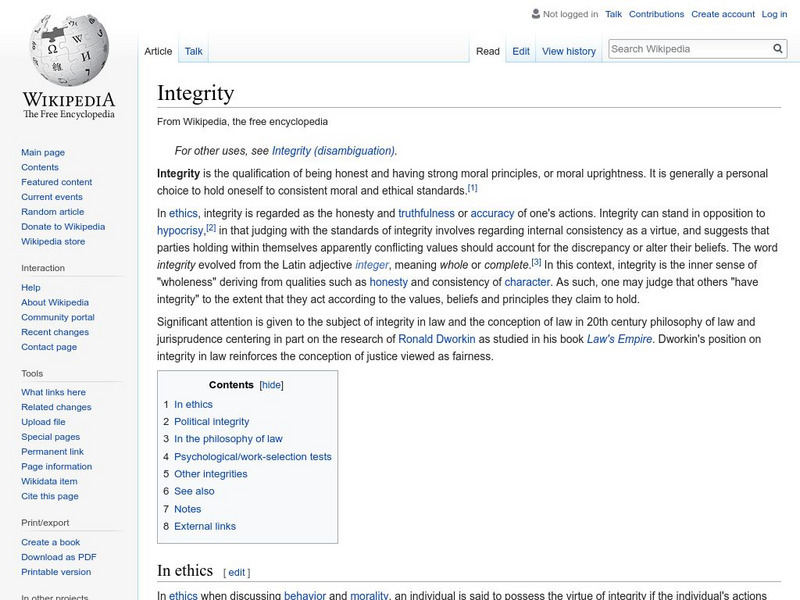Curated OER
Allegory in Painting
Students define allegory and discuss its use in the visual arts, examine paintings from various time periods and identify allegorical themes in them, and explain what makes an image allegorical.
Curated OER
Exploring China
Second graders explore the geography, holidays, important teachers, and inventions from China in the nine lessons of this unit. The results of their inquiries are expressed through a variety of products, writings, and presentations.
Curated OER
Peace and Virtue
Learners discuss the consequences of improper actions as well as the sense of accomplishment that comes from doing the right thing and helping others. Students divide into two teams and play a game related to the story they...
Curated OER
"The Story of Miss Li" by Po Hsing-chien
Fourth graders explore a classic, well-regarded tale of traditional Chinese literature and gain a rudimentary understanding of Confucius values.
Other
Nova Roma: The Roman Virtues
A list of all the virtues that the ancient Romans felt were necessary. This page links to many other site about Roman history.
Other
Bill of Rights Institute: Citizen Bee Study Guide: Citizen Responsibilities
Use this study guide to get a quick review of the responsibilities of Texas citizenship.
Stanford University
Stanford Encyclopedia of Philosophy: Virtue Epistemology
Article from the Stanford Encyclopedia of Philosophy addresses issues of epistemic justication in the contemporary theory of "virtue epistemology." Author presents a half-dozen varieties of the theory, considering specific arguments for...
Other
American revolution.org: Sins of the Fathers: Religion and Revolution
An academic essay describing the ways in which "religion is an active if not a determinative" cause for the American Revolution. The essay describes three influential areas: (1) religion and liberty, (2) religion and community, and (3)...
Internet Encyclopedia of Philosophy
Internet Encyclopedia of Philosophy: Epicurus
This site from the Internet Encyclopedia of Philosophy is an excellent, detailed introduction to the philosophy of Epicurus. Divided into sections addressing his metaphysics, epistemology, ethics. Includes numerous links to related...
Internet Encyclopedia of Philosophy
Internet Encyclopedia of Philosophy: Stoicism
This site from the Internet Encyclopedia of Philosophy provides a good introduction to the main ideas of Stoicism. Contextualizes the claims of this school among Aristotelian, Heraclitean, and Cynic traditions.
English Verse
English Verse: George Herbert (1593 1632)
English priest George Herbert's life is briefly sketched here and the text of several of his poems is included.
Wikimedia
Wikipedia: Integrity
In addition to providing a definition of "integrity," this article has information on the various ways in which integrity manifests in popular culture, law, and science. Contains several links to articles on related topics.
Philosophy Pages
Philosophy Pages: Aristotle (384 322 Bce)
The life, philosophy and metaphysics of Aristotle (384-322 BCE) are surveyed. The aim of Aristotle's logical treatises (known as the Organon) was to develop a universal method of reasoning by means of which it would be possible to learn...











